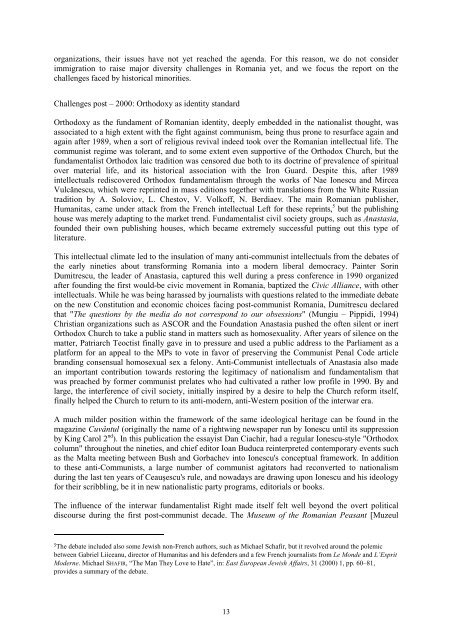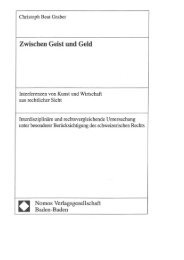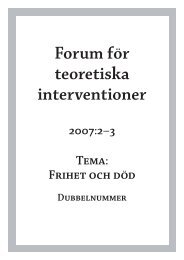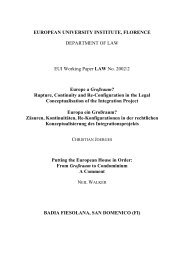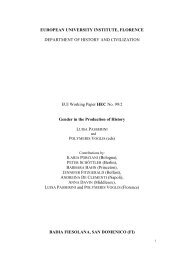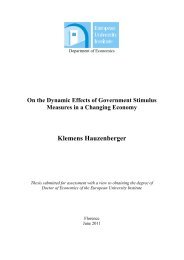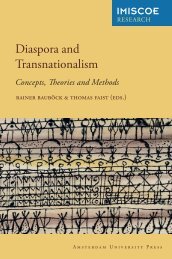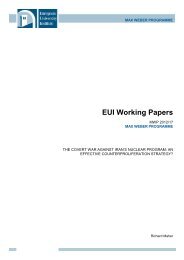Sinziana-Elena Poiana Ioana Lupea Irina-Madalina Doroftei Alina ...
Sinziana-Elena Poiana Ioana Lupea Irina-Madalina Doroftei Alina ...
Sinziana-Elena Poiana Ioana Lupea Irina-Madalina Doroftei Alina ...
You also want an ePaper? Increase the reach of your titles
YUMPU automatically turns print PDFs into web optimized ePapers that Google loves.
organizations, their issues have not yet reached the agenda. For this reason, we do not consider<br />
immigration to raise major diversity challenges in Romania yet, and we focus the report on the<br />
challenges faced by historical minorities.<br />
Challenges post – 2000: Orthodoxy as identity standard<br />
Orthodoxy as the fundament of Romanian identity, deeply embedded in the nationalist thought, was<br />
associated to a high extent with the fight against communism, being thus prone to resurface again and<br />
again after 1989, when a sort of religious revival indeed took over the Romanian intellectual life. The<br />
communist regime was tolerant, and to some extent even supportive of the Orthodox Church, but the<br />
fundamentalist Orthodox laic tradition was censored due both to its doctrine of prevalence of spiritual<br />
over material life, and its historical association with the Iron Guard. Despite this, after 1989<br />
intellectuals rediscovered Orthodox fundamentalism through the works of Nae Ionescu and Mircea<br />
Vulcănescu, which were reprinted in mass editions together with translations from the White Russian<br />
tradition by A. Soloviov, L. Chestov, V. Volkoff, N. Berdiaev. The main Romanian publisher,<br />
Humanitas, came under attack from the French intellectual Left for these reprints, 5 but the publishing<br />
house was merely adapting to the market trend. Fundamentalist civil society groups, such as Anastasia,<br />
founded their own publishing houses, which became extremely successful putting out this type of<br />
literature.<br />
This intellectual climate led to the insulation of many anti-communist intellectuals from the debates of<br />
the early nineties about transforming Romania into a modern liberal democracy. Painter Sorin<br />
Dumitrescu, the leader of Anastasia, captured this well during a press conference in 1990 organized<br />
after founding the first would-be civic movement in Romania, baptized the Civic Alliance, with other<br />
intellectuals. While he was being harassed by journalists with questions related to the immediate debate<br />
on the new Constitution and economic choices facing post-communist Romania, Dumitrescu declared<br />
that "The questions by the media do not correspond to our obsessions" (Mungiu – Pippidi, 1994)<br />
Christian organizations such as ASCOR and the Foundation Anastasia pushed the often silent or inert<br />
Orthodox Church to take a public stand in matters such as homosexuality. After years of silence on the<br />
matter, Patriarch Teoctist finally gave in to pressure and used a public address to the Parliament as a<br />
platform for an appeal to the MPs to vote in favor of preserving the Communist Penal Code article<br />
branding consensual homosexual sex a felony. Anti-Communist intellectuals of Anastasia also made<br />
an important contribution towards restoring the legitimacy of nationalism and fundamentalism that<br />
was preached by former communist prelates who had cultivated a rather low profile in 1990. By and<br />
large, the interference of civil society, initially inspired by a desire to help the Church reform itself,<br />
finally helped the Church to return to its anti-modern, anti-Western position of the interwar era.<br />
A much milder position within the framework of the same ideological heritage can be found in the<br />
magazine Cuvântul (originally the name of a rightwing newspaper run by Ionescu until its suppression<br />
by King Carol 2 nd ). In this publication the essayist Dan Ciachir, had a regular Ionescu-style "Orthodox<br />
column" throughout the nineties, and chief editor Ioan Buduca reinterpreted contemporary events such<br />
as the Malta meeting between Bush and Gorbachev into Ionescu's conceptual framework. In addition<br />
to these anti-Communists, a large number of communist agitators had reconverted to nationalism<br />
during the last ten years of Ceauşescu's rule, and nowadays are drawing upon Ionescu and his ideology<br />
for their scribbling, be it in new nationalistic party programs, editorials or books.<br />
The influence of the interwar fundamentalist Right made itself felt well beyond the overt political<br />
discourse during the first post-communist decade. The Museum of the Romanian Peasant [Muzeul<br />
5 The debate included also some Jewish non-French authors, such as Michael Schafir, but it revolved around the polemic<br />
between Gabriel Liiceanu, director of Humanitas and his defenders and a few French journalists from Le Monde and L’Esprit<br />
Moderne. Michael SHAFIR, “The Man They Love to Hate”, in: East European Jewish Affairs, 31 (2000) 1, pp. 60–81,<br />
provides a summary of the debate.<br />
13


